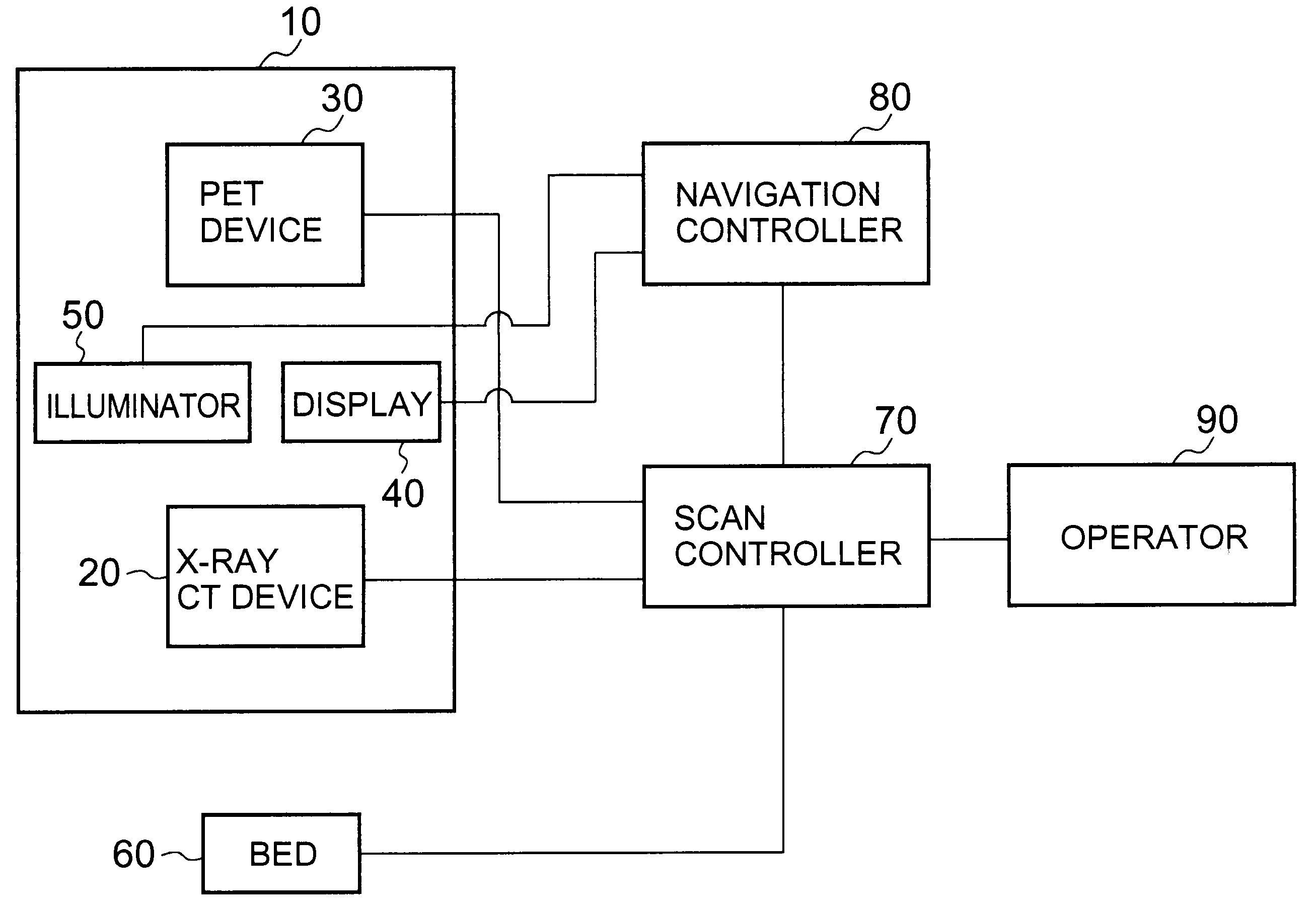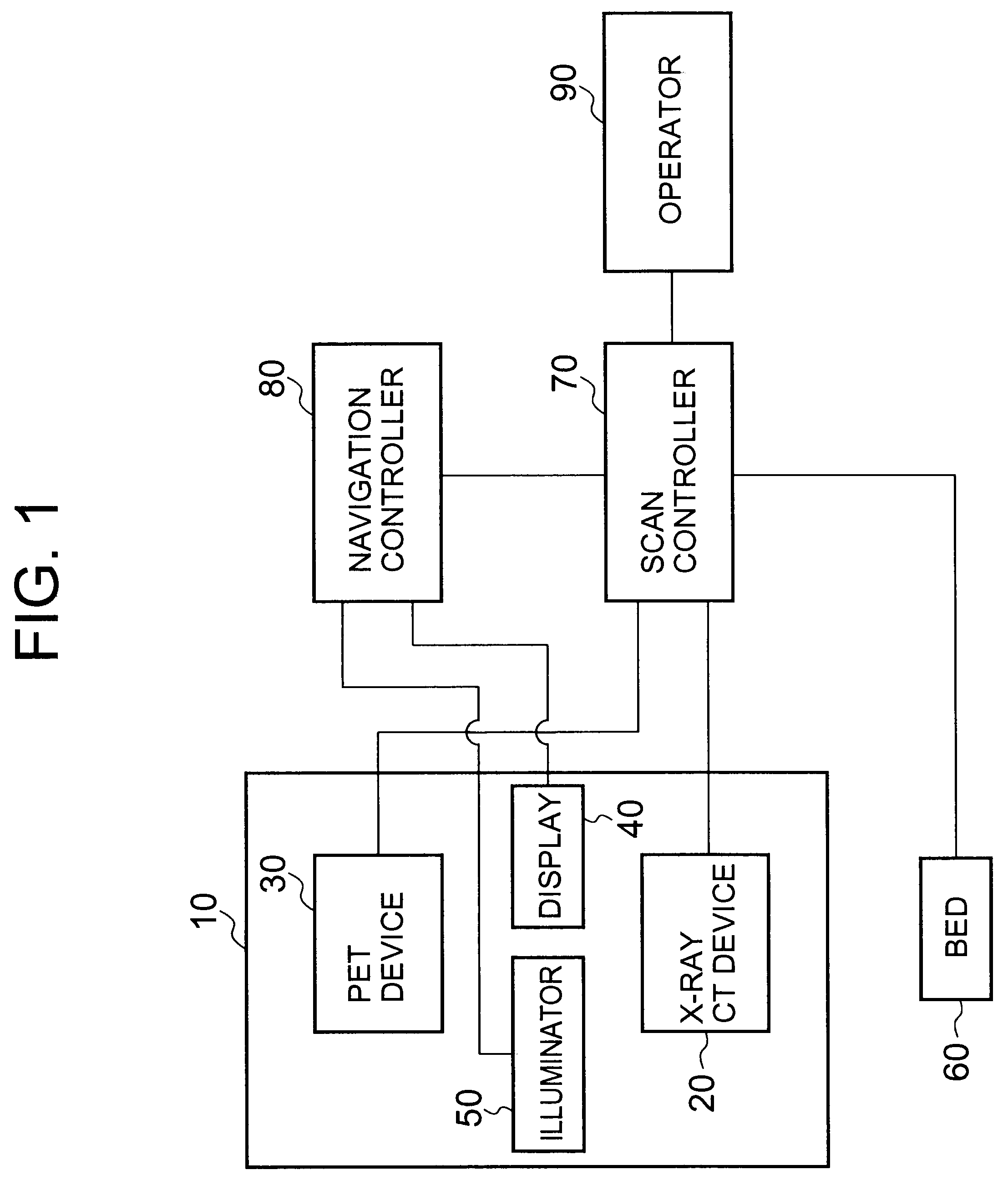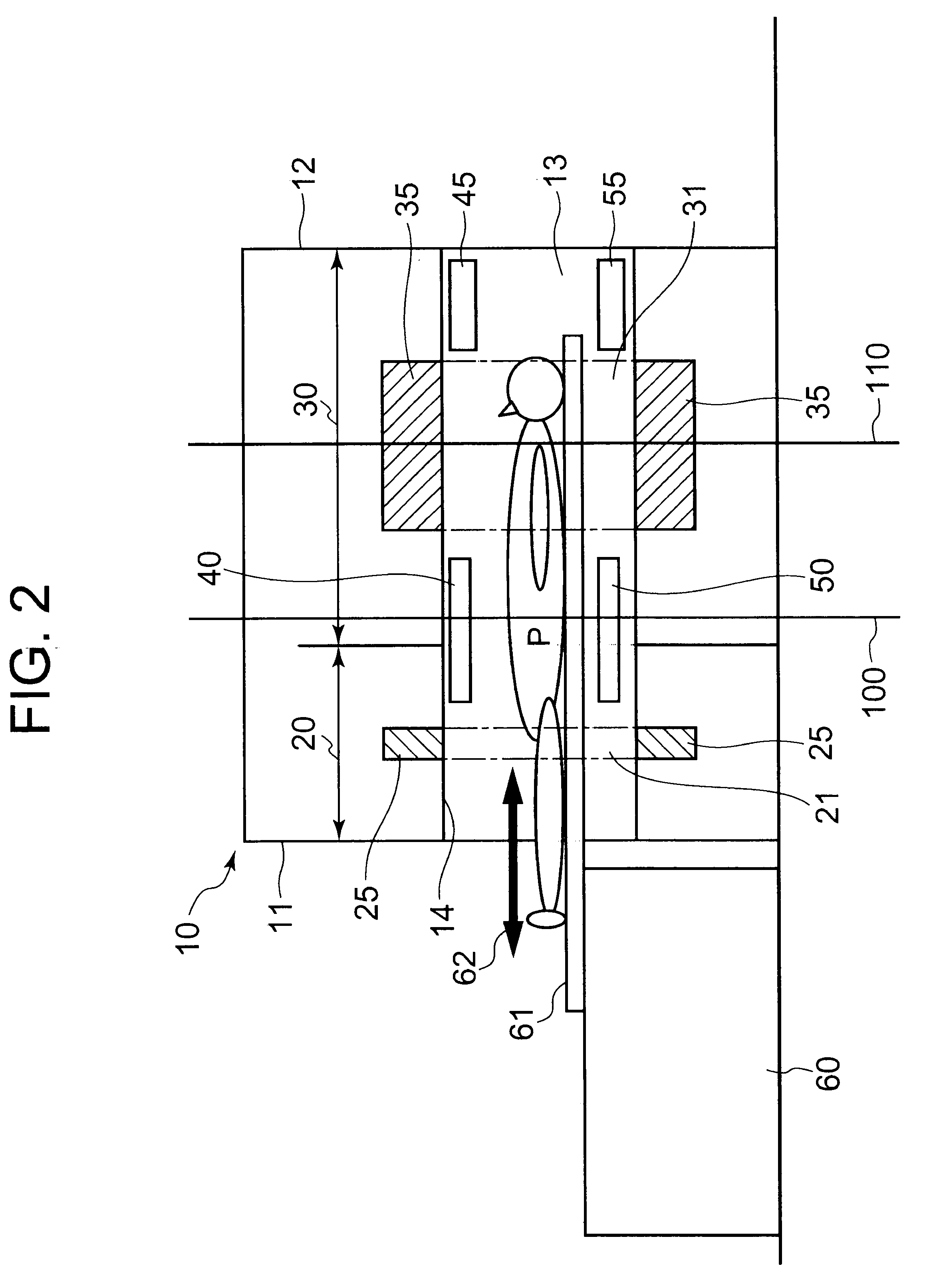Medical image diagnostic device
a diagnostic device and medical imaging technology, applied in the direction of diagnostics, instruments, optical radiation measurement, etc., can solve the problems of imposing a heavy burden on the subject, ignoring the burden on the medical staff, and difficulty in adequately brightening the interior of the imaging part, so as to reduce the burden on the subject and the medical staff, and efficiently perform ct imaging and pet imaging.
- Summary
- Abstract
- Description
- Claims
- Application Information
AI Technical Summary
Benefits of technology
Problems solved by technology
Method used
Image
Examples
Embodiment Construction
[0029]The following is an explanation of one embodiment of the medical image diagnostic device according to the present invention.
[0030]Additionally, in these diagrams, the same parts have been marked with the same symbols.
[0031]FIG. 1 is a schematic diagram showing the overall structure of one embodiment of a medical image diagnostic device. The medical image diagnostic device main unit 10 comprises an X-ray CT device 20 and a PET device 30, sharing a pedestal. The medical image diagnostic device main unit 10, which will be described again later, comprises an imaging part shared by an X-ray CT device 20 and a PET device 30, in which a display part 40 and an illumination part 50 are provided. Additionally, the medical image diagnostic device comprises a bed device 60, for sending a subject into the imaging part. Furthermore, it also comprises, among others, a scan controller 70, for controlling the X-ray CT device 20, the PET device 30 and the bed device 60, and it comprises a navig...
PUM
 Login to View More
Login to View More Abstract
Description
Claims
Application Information
 Login to View More
Login to View More - R&D
- Intellectual Property
- Life Sciences
- Materials
- Tech Scout
- Unparalleled Data Quality
- Higher Quality Content
- 60% Fewer Hallucinations
Browse by: Latest US Patents, China's latest patents, Technical Efficacy Thesaurus, Application Domain, Technology Topic, Popular Technical Reports.
© 2025 PatSnap. All rights reserved.Legal|Privacy policy|Modern Slavery Act Transparency Statement|Sitemap|About US| Contact US: help@patsnap.com



